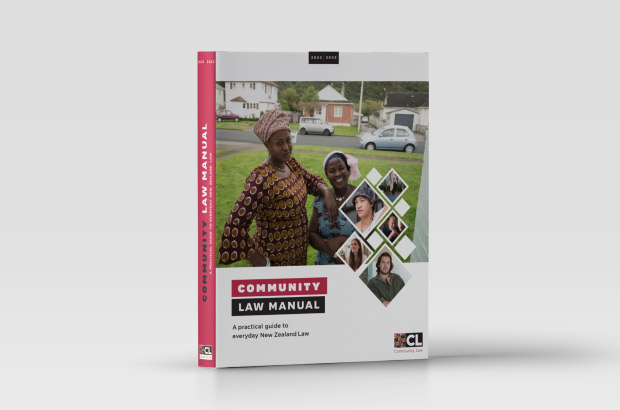Types of main benefits
You’re 65 or older
Qualifying for the NZ Superannuation
Do I qualify to get the NZ Superannuation?
New Zealand Superannuation and Retirement Income Act 2001, ss 7, 8
You can get the New Zealand Superannuation (NZ Super) if:
- you’re 65 or older
- you’re ordinarily resident in New Zealand
- you’ve been both present and resident here for at least 10 years since you turned 20, and
- you’ve been both present and resident here (or in Tokelau, the Cook Islands or Niue) for at least five years since you turned 50.
However, some absences from New Zealand are not counted in determining whether you’re eligible for NZ Super including if you are overseas for any of the following reasons:
- special medical or surgical treatment (if there was good and sufficient reason for the you to leave New Zealand for this)
- vocational training (if there was good and sufficient reason for you to leave New Zealand for this)
- serving on a ship registered or owned in New Zealand, and engaged in trading to and from New Zealand
- overseas services in forces as a member of the naval, military or air force of any Commonwealth country (this includes war service as a member of any organisation attached to any of these forces, eg, YMCA, church, Red Cross)
- full-time voluntary work (humanitarian work)
- any capacity as an accredited volunteer appointed by Volunteer Service Abroad
- missionary work.
Note: Currently people need to have lived in New Zealand for at least 10 years after age 20. Starting in July 2024, this residency period will gradually increase to 20 years by July 2042. People will still need to have lived in New Zealand, the Cook Islands, Niue or Tokelau (or a combination of these) for at least 5 years since they turned 50.
How much do you get on the NZ Super?
New Zealand Superannuation and Retirement Income Act 2001, s 12, Schedule 1
You can find out the current NZ Super rates on Work and Income’s website, here (or go to workandincome.govt.nz and search “NZ Super rates”). The rates are usually adjusted for inflation on 1 April each year.
If you’re single, there are two rates of payment:
- Single (Sharing)– You get this if you’re living with one or more other adults (people 18 or older) other than your dependent child.
- Single (Living Alone)– This is about 10% higher than the Single (Sharing) rate because people’s living costs are generally higher if they live alone. To qualify, you must not be living with any other adults (people 18 or older) except for any of your adult children who are financially dependent on you and any temporary visitors (people staying less than 13 weeks). The Living Alone payment can begin within 28 days after you become eligible.
If you have a partner, the amount of your NZ Super will depend on whether they also qualify for NZ Super:
- Couple rate (if both qualify)– If you and your partner both qualify for NZ Super, you’re each entitled to the same “Couple rate,” which is paid to each of you separately.
- Half couple rate (if only you qualify)– If your partner does not qualify (for example, your partner is not yet 65 or does not meet the residence requirements), you will get half the couple rate of payment.
What if my circumstances change?
If you’ve been receiving the Living Alone rate of NZ Super and then move in with one of your adult children, you’ll need to inform Work and Income of this as this means you’ll no longer qualify for the Living Alone rate and will qualify instead for the lower, Single (Sharing) rate. However, if you’re financially supporting your adult children, you’ll still qualify for the Living Alone rate.
Residential care or hospitalisation
New Zealand Superannuation and Retirement Income Act 2001, ss 17–19
If you have a long stay in hospital, the rate of your NZ Super is not affected for the first 13 weeks. After the 13th week, NZ Super can be paid at a lower rate. However, Work and Income can decide to pay a higher rate based on your personal financial situation.
If your partner’s rate of NZ Super is affected by them being hospitalised for more than 13 weeks, your NZ Super will then be paid at the Living Alone or Single (Sharing) rate of NZ Super.
If your partner moves into residential care and you’re entitled to NZ Super, you’ll get the Living Alone or Single (Sharing) rate of NZ Super. If you’re not entitled to NZ Super, you might be entitled to an Emergency Benefit (see: “Qualifying for the Emergency Benefit”).
Absences from New Zealand
New Zealand Superannuation and Retirement Income Act 2001, ss 21–24
You can continue to get NZ Super for the first 26 weeks of an absence so long as the absence is for not more than 30 weeks (or if an absence beyond 30 weeks is for reasons beyond your control).
Any extra help that you are getting (such as Accommodation Supplement, Disability Allowance, Winter Energy Payment) cannot continue to be paid for more than 28 days while you are absent from New Zealand.
If you are absent from New Zealand for longer than 30 weeks, you will lose your entitlement to NZ Super from the day after you leave the country unless:
- You’re absent from New Zealand for a cumulative total of up to 2 years to get medical treatment for you, your partner, your sibling or your dependent child, and the Ministry of Health is providing assistance.
- You can keep getting the NZ Super for up to 156 weeks if you’re away from New Zealand because you’re doing full-time voluntary work with an aid agency, and you’re not depriving someone else of paid employment.
Payments when intending to live or travel overseas for six months or more
New Zealand Superannuation and Retirement Income Act 2001, ss 26, 26A, 26B
If you are already getting NZ Super, you can generally continue to be paid at least a portion of your pension while you are travelling or living overseas. You must apply to Work and Income before you leave New Zealand (unless you left intending to be away for less than six months, but circumstances outside of your control mean that you have to extend your planned time away).
There are some special rules for people going to live in the Pacific for more than a year or people going to live in a country that New Zealand has a ‘reciprocal agreement’ with (for example, Australia, the United Kingdom, and Canada).
You can contact International Services to discuss your plans and how to apply on 0800 777 227. More information is available on Work and Income’s website, here (or go to workandincome.govt.nz and search “get Super overseas”.
Overseas pensions
If you’re from overseas, you may be entitled to payments from pension schemes that you contributed to from your own income or savings while overseas. Payments from these types of pensions should not be deducted from NZ Super.
Entitlements under international agreements
New Zealand has bilateral social security agreements with a number of other countries. These allow New Zealanders access to certain benefits or pensions when moving to those countries and allow for similar entitlements to people who move to New Zealand from those countries.


